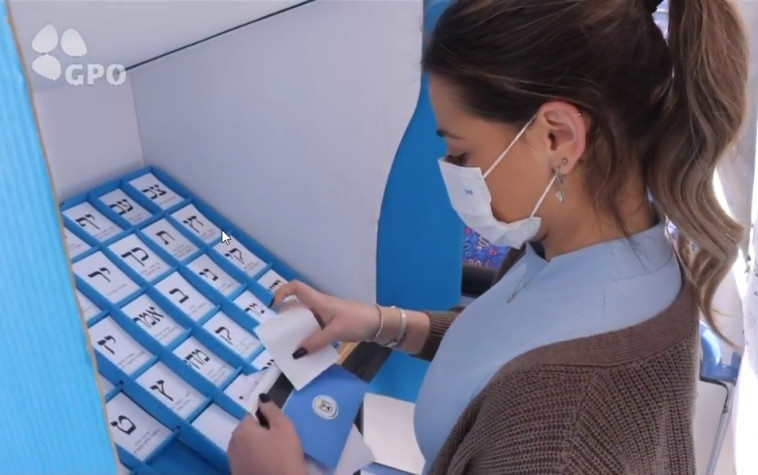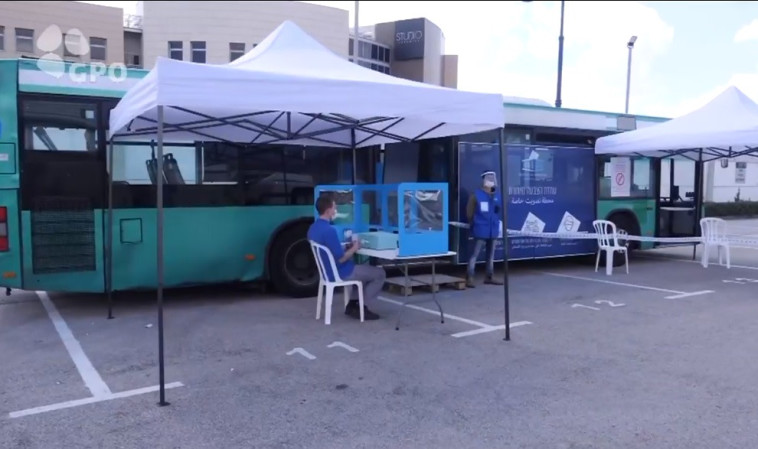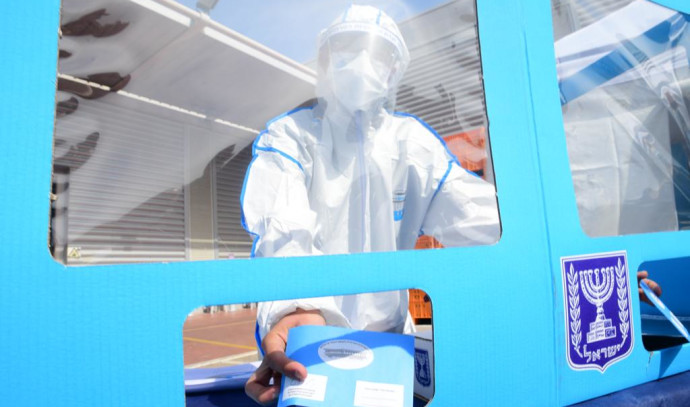Live Broadcast: Orly Adas, director general of the Central Election Commission, said today (Monday) at a briefing led by her in the run-up to the upcoming Knesset elections that “our reference scenario is expected for about 37,000 patients and about fifty thousand eligible voters.” In addition, she announced that “in light of the opening Examine the issue of opening ballots in Natbag on Election Day. It’s still in the thinking of the professional team. “
Adas mentioned earlier in the debate that the Knesset had approved the committee’s budget earlier: “This afternoon, the budget was approved by the Election Commission, including for the current year. The budget is about NIS 644 million, a significant portion of it, about NIS 237 million. “This issue has a direct impact on all budget items. The bulk of the addition is intended to protect public health when it comes to voting.”
She also addressed a significant issue that will occupy the committee quite a bit, preserving the health of voters during the Corona epidemic and making voting accessible to Corona isolators and patients: “We are still uncertain about the isolates and patients who will be on Election Day. Only in recent days the economy opens and the sky opens. “These are the consequences ahead of Election Day. We know we will not be able to set up more polling stations in the planned tent complexes – 500 all over the country.”
She explained how Corona patients could vote: “Anyone who is registered on the Ministry of Health website can call the information center for a designated number and coordinate transportation to a specific ballot box. We are considering participation in financing the transportation of isolated people. “
 Voting at the Corona period (Photo: Central Election Commission)
Voting at the Corona period (Photo: Central Election Commission)The chairwoman presented the possible scenario in which the election commission would deal with hundreds of thousands of isolated people: “The number of isolated people is about one hundred and twenty thousand. They are not allowed to leave the house for any purpose. But the election law allows them to go out only for voting. In order for everyone to know for sure that no patient goes to the polls who does not encounter a patient on his way to the polls, the Election Commission will operate an unprecedented array of vehicles on Election Day, in which we will travel between 35,000 and 40,000 patients on Election Day.
She continued: “Each patient is personally transported. From his place of residence to the place where the patient votes, the driver will wait for him and return him to his home. All this to make sure he does not make a stopover on his way to vote. So that each of us when he votes will know for sure that every effort has been made to protect our health. Any possibility of infection. “
She added: “In some of the polling stations for patients and isolates there will be a possibility to vote and drive. A voting stand will be attached to the window. We will also allow voting in the corona wards at the hospital. Only patients who can get out of bed or get to the polling station with the bed will not come to the patients. To positions. “
In addition, “The members of the polling committee will be outside the corona ward. They will monitor the voting using a video and sound kit. If a voter finds it difficult to vote during the corona ward vote due to physical difficulty he will be assisted by another patient from the ward.”
Adas mentioned the need for people to help the committee and said that it “calls on volunteers, especially the recovering and vaccinated from among them, to volunteer. “We should try to formulate more creative thinking beyond the color positions and drive. If there are loads at these polling stations, we will use another type of polling station.”
“We have no option for more than five hundred. In an attempt to reduce congestion on Election Day, we trained with Egged Buses and set up polling stations there. We will lead the buses to parking lots in the same places. It is a bus on wheels but not a mobile ballot box. It is a ballot box. “It is stationary. Its advantage is that it can be transported to a place where there will be a special load. We are currently training about fifty such buses. Between two and three buses at each polling station.”
 Special ballots for Corona insulators (Photo: Central Election Commission)
Special ballots for Corona insulators (Photo: Central Election Commission)As will be recalled, one of the main challenges of the committee is its conduct in holding the elections during the corona plague, and making the ballot box accessible while maintaining the hygiene, sterilization and health of the voters. In the upcoming elections, different types of special polling stations will be added: polling stations for the isolated, polling stations for patients recovering at home, polling stations for patients hospitalized in Corona wards, polling stations in hotels for isolated patients, polling stations in nursing homes, sheltered housing and housing clusters.
The Knesset’s Finance Committee today approved the budget of the 24th Knesset Election Committee in the amount of NIS 675 million, compared with NIS 392 million in the previous elections.
The budget gap between the two election campaigns is about NIS 282.6 million and is mainly due to holding elections in the shadow of the Corona virus, which require the Ministry of Health to meet the requirements and as a result increase the number of ballots by about 35%.
In the upcoming elections, more than 15,000 ballots will be cast, compared to about 11,000 ballots in the previous elections, an increase of about 35% that has a direct effect on almost every item of the budget.
